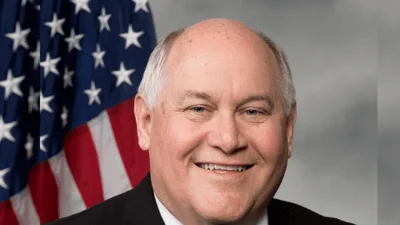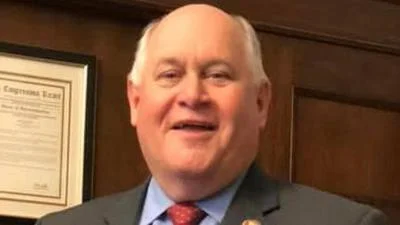U.S. Rep. Ron Estes representing Kansas' 4th Congressional District | Official U.S. House headshot
U.S. Rep. Ron Estes representing Kansas' 4th Congressional District | Official U.S. House headshot
This week, Representatives Ron Estes and Mike Thompson took steps to reshape the landscape of energy investment by reintroducing the Financing Our Energy Future Act. Aimed at diversifying energy investment options, this bipartisan bill seeks to open up master limited partnerships (MLPs) to renewable energy projects—a setup currently benefiting only traditional energy sectors.
According to Rep. Estes, the purpose is to ensure energy strategy is both diverse and strategic. "Americans benefit from a variety of energy options, and our country is stronger when we have an all-of-the-above energy strategy that provides reliability and consumer choice," he stated. He believes the legislation will not only enhance the competitive landscape but also foster growth, job creation, and American energy prominence. "Our tax code shouldn't be picking winners and losers—especially in American energy production—and this bill provides parity for all U.S. energy projects that will bolster production and encourage market-based competitiveness."
Rep. Thompson echoed these sentiments, emphasizing the equitable extension of tax incentives. "The Financing Our Energy Future Act gives renewable energy projects access to tax incentives currently only available to oil, gas, and coal projects," he said. Thompson views the bill as a "critical step in increasing renewable energy production and delivering investments in American energy."
A master limited partnership combines the tax benefits of a partnership with the liquidity of public trading, and until now, has been restricted by law to sectors such as oil, natural gas, and coal. The proposed bill aims to broaden this to include renewable energy initiatives, allowing them to compete for the same investment opportunities.
The bill identifies a range of energy resources that would qualify if it becomes law, such as solar, wind, marine, hydrokinetic energy, and others like energy storage and carbon capture technologies. In the Senate, a companion bill has already been introduced by Senators Jerry Moran from Kansas and Chris Coons from Delaware.



 Alerts Sign-up
Alerts Sign-up